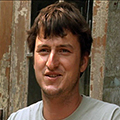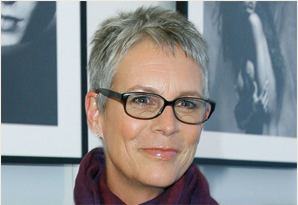
Jamie Lee Curtis
Award Winning Actress, Author, Social Activist, Voice of Dirt!
Award-winning actress Jamie Lee Curtis has starred in such blockbuster films as Trading Places, A Fish Called Wanda, True Lies and Freaky Friday. On television Ms. Curtis starred in the acclaimed sitcom Anything But Love, earning her both Golden Globe and People’s Choice Awards, TNT’s adaptation of the Wendy Wasserstein play The Heidi Chronicles which also earned her a Golden Globe nomination, and in the CBS television film Nicholas’ Gift for which she received an Emmy nomination.
Ms. Curtis is the author of a number of highly praised children’s books, including the current HarperCollins’ best seller Big Words for Little People.
An AIDS activist, Ms. Curtis has a deep and active connection to many children’s charities including Children’s Hospital of Pittsburgh and Children’s Hospital of Los Angeles. In addition Curtis is on the board of the Starlight Children’s Foundation and is the official spokesperson for CAAF (The Children’s Affected by AIDS Foundation) on whose executive Advisory Board she is a serving member.
Curtis, the mother of Annie, age 22, and Thomas, age 13, has been married for 25 years to actor/director Christopher Guest. She will next be seen in the Disney comedyYou Again, set for release in 2010.
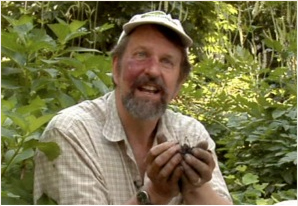
Bill Logan
Author, Dirt: The Ecstatic Skin of the Earth, and Urban Arborist
Bill Logan is an award-winning natural history writer and environmental columnist. He wrote the Cuttings column for the New York Times and helped launch Garden Design magazine. Logan has been a contributor to numerous magazines including HG, House Beautiful, Organic Gardening, The Whole Earth Review, Parabola, Orion, Horticulture and Fine Gardening. His book on gardening tools won the Best Book of the Year award from the Garden Writers Association of America. In 1992, Logan founded Urban Arborists to care for trees in New York City. Three years later, “Dirt: The Ecstatic Skin of the Earth,” was published. It was named Book of the Week by Entertainment Weekly and received a glowing front-page review in the Sunday Los Angeles Times Book Review section. Logan’s most recent book, “Oak: The Frame of Civilization,” published in 2008 by W.W. Norton.
“The Dust Bowl was an event, not quite on the same scale, but comparable to what happened after the last Ice Age. We made a really big change in the landscape just by bad farming practices.” – Bill Logan, Dirt! The Movie
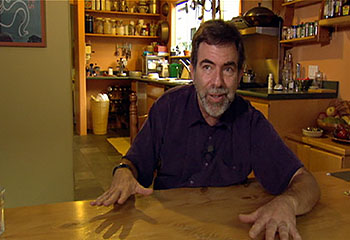
Andy Lipkis
President, Founder of TreePeople
Andy Lipkis began planting trees to rehabilitate smog and fire-damaged forests when he was 15 years old. He founded TreePeople and has served as its president since 1973. For over three decades, the Los Angeles-based organization has served as a guiding light for the Citizen Forestry Movement. Lipkis’ latest venture, the T.R.E.E.S. program (Transagency Resources for Environmental and Economic Sustainability), is a public-private partnership aimed at managing the greater Los Angeles area as an urban ecosystem. Lipkis inspired the planting of one million trees in Los Angeles preceding the 1984 Summer Olympics.
Lipkis and his wife Kate were named to the United Nations Environment Program’s Global 500 Roll of Honor, and hold American Forests’ Lifetime Achievement Award. In 1998, Andy was honored as Founder of the Year at National Philanthropy Day, and two years later, he and Kate authored “The Simple Act of Planting A Tree.” In 2005, Andy wrote the call to action for the 20th anniversary release of the Jean Giono book “The Man Who Planted Trees.”
“Dirt! The Movie opens our eyes to the science and healing power of a world right beneath our feet. It inspires us to engage and enjoy getting our hands dirty, while providing real hope in perilous times.” – Andy Lipkis
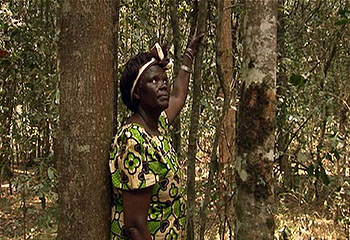
Wangari Maathai
Nobel Laureate and Founder, Green Belt Movement
Wangari Maathai is internationally recognized for her persistent struggle in the fight for democracy, human rights and environmental conservation. Born in Nyeri, Kenya, Professor Maathai was the first woman in East and Central Africa to earn a doctorate degree. In 1976, as the chair of the Department of Veterinary Anatomy at the University of Nairobi, Professor Maathai started a tree-planting initiative. Her initiative grew into a broad-based, grassroots organization called the Green Belt Movement, whose main focus is planting trees with women’s groups to both conserve the environment and improve Kenyans’ quality of life dramatically. Since then, the Pan African Green Belt Network has launched similar tree planting initiatives in other African countries, including Tanzania, Uganda, Malawi, Lesotho, Ethiopia and Zimbabwe. A visiting Fellow at Yale University’s Global Institute of Sustainable Forestry, Professor Maathai serves on the boards of numerous organizations, including the United Nations Secretary General’s Advisory Board on Disarmament. Her accomplishments include an appointment as Kenya’s Assistant Minister for Environment, Natural Resources and Wildlife and a presidency of the African Union’s Economic, Social and Cultural Council.Through the Green Belt Movement, Professor Maathai has assisted in planting more than 20 million trees across Africa, receiving numerous awards, most notably the Nobel Peace Prize in 2004.
“Clothe the earth – put on the skin, a dress. A green dress, like trees, like vegetation. And then, when the earth is covered with green, with vegetation, it looks very beautiful. And in this age of climate change, can you imagine how happy the planet would be?” – Wangari Maathai, Dirt! The Movie
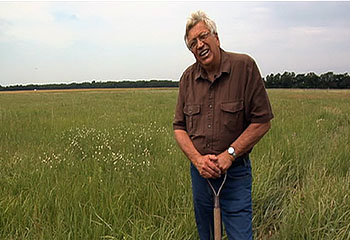
Wes Jackson
President, The Land Institute
President of The Land Institute, Wes Jackson earned a BA in Biology from Kansas Wesleyan, an MA in Botany from University of Kansas, and a PhD in Genetics from North Carolina State University. He established and served as chair of one of the country’s first environmental studies programs at California State University-Sacramento and then returned to his native Kansas to found The Land Institute in 1976. He is the author of several books including “New Roots for Agriculture” and “Becoming Native to This Place,” and is widely recognized as a leader in the international movement for a more sustainable agriculture. He was a 1990 Pew Conservation Scholar, in 1992 became a MacArthur Fellow, and in 2000 received the Right Livelihood Award (called the “alternative Nobel prize”). In 2005 he was honored by Smithsonian Magazine as one of the 35 innovators who made a difference – a list that also included Bill Gates, Frank Gehry, Maya Angelou, Yo-Yo Ma and Annie Liebowitz.
“Here’s this 120-year window in which we find ourselves and it’s probably the most important window in the history of homosapien.” – Wes Jackson, Dirt! The Movie
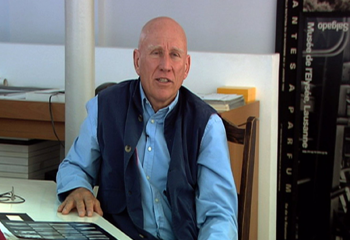
Sebastiao Salgado
Documentary Photojournalist and Co-Founder, Instituto Terra
Sebastiao Salgado worked as an economist for the International Coffee Organization, often traveling to Africa on missions for the World Bank. In 1973, Salgado switched to photography, working on news assignments before veering to documentary work. Today, Sebastiao Salgado is one of the most respected photojournalists in the world, his reputation forged by decades of dedication and powerful black and white images of dispossessed and distressed people taken in places where most wouldn’t dare to go. His images artfully teach us the disastrous effects of war, poverty, disease, and hostile climatic conditions. In 1999, appalled by the relation between human degradation and environmental degradation, Lelia Deluiz Wanick Salgado and Sebastiao Salgado founded Instituto Terra, a nonprofit organization based in their home town of Aimores, Brazil. Designed to preserve and promote the biodiversity of the Brazilian Atlantic Forest, Instituto Terra has become a center of excellence in the areas of restoration, environmental education, sustainable development and social mobilization.
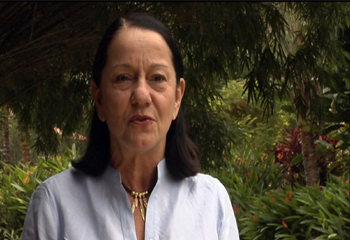
Lelia Deluiz Wanick Salgado
Co-Founder, Instituto Terra
Lelia was born in Vitoria, Brazil, and moved to Paris in 1969. Lelia runs Amazonas Images, the photography agency she created with Sebastiao and has designed and curated numerous exhibitions of Sebastiao’s photographs in major museums and galleries throughout the world. She has degrees in architecture from Ecole Nationale Superieure des Beaux-Arts, Paris, and in Urban Planning from the University of Paris. She is the President and Co-Founder of Instituto Terra.
“In all this land around this planet, if we started to replant – in ten years there would be no more dead land.” – Sebastiao Salgado, Dirt! The Movie
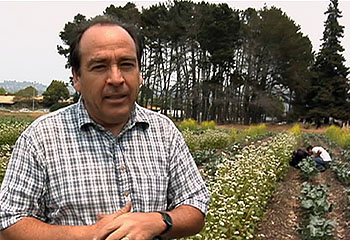
Miguel Altieri
Professor of Agroecology, University of California at Berkeley
Miguel Altieri has been teaching Agroecology – the relation between agricultural crops and the environment – at the University of California at Berkeley since 1981 in the Department of Environmental Science, Policy and Management. Professor Altieri, who was born in Chile, is particularly interested in how the interactions between plants, animals, humans and the environment affect agricultural systems in Central and South America. He has served as a scientific advisor to many prominent NGOs, including the Latin American Consortium on Agroecology and Development (CLADES), the Consultative Group on International Agriculture Research and the FAO-GIAHS program (Globally Ingenious Agricultural Heritage Systems) a program devoted to identifying and dynamically conserving traditional farming systems in the developing world. He also served as General Coordinator for the United Nations Development Program’s Sustainable Agriculture Networking and Extension. Professor Altieri is also the general coordinator of the Latin American Scientific Society of Agroecology (www.agroeco.org/socla). Professor Altieri is the author of more than 200 publications, and numerous books including “Agroecology: The Science of Sustainable Agriculture and Biodiversity,” “Pest Management in Agroecosystems and Agroecology” and “The Search for a Truly Sustainable Agriculture.”
“If we don’t take care of the soil which is just the first five centimeter layer of life that is on the earth, our future is totally condemned.” – Miguel Altieri, Dirt! The Movie
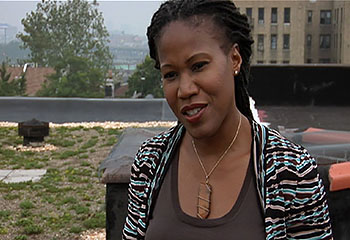
Majora Carter
Founder, Sustainable South Bronx
Born, raised and residing in the South Bronx, NY, Carter believes residents shouldn’t have to move out of their neighborhood to live in a better one. She is committed to creating intensive urban forestation with green roofing and water permeable open spaces. This robust horticultural infrastructure cleans the air, reduces the urban-heat island effect, efficiently manages storm water runoff and creates jobs.
In 2001, Carter founded the nonprofit, environmental-justice solutions corporation, Sustainable South Bronx (SSBx). Carter’s first major project was writing a $1.25 million federal transportation planning grant for the South Bronx Greenway, which led to the area’s first new waterfront park in over 60 years. Two years later, SSBx opened the Bronx Environmental Stewardship Training program (BEST) – one of the nation’s first urban green-collar job training and placement systems. After 5 years, it boasts an 85% employment rate. Carter’s local environmental solutions rest on poverty alleviation through green economic development; the local jobs they create can empower communities to resist bad environmental decisions. Carter is a 2006 MacArthur Genius Fellow, one of Essence Magazine’s 25 most influential African Americans, one the New York Post’s 50 Most Influential Women for the past two years, co-host of The Green on Sundance Channel, and a board member of the Wilderness Society. She is also president of the green-collar economic consulting company, The Majora Carter Group, LLC.
“You don’t have to move out of your neighborhood to live in a better one but you sure do have to fight if you want to reconnect your life into a more natural state that actually includes poor people.”- Majora Carter, Dirt! The Movie
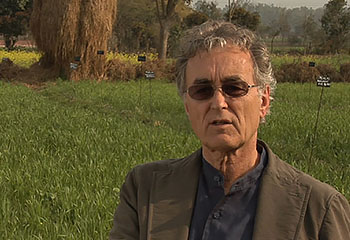
Fritjof Capra
Director of Center for Ecoliteracy, Theoretical Physicist
Fritjof Capra has published many technical papers and lectured extensively on the philosophical implications of modern science. His most notable works include “The Tao of Physics” (1975), “The Turning Point” (1982) and “The Web of Life” (1997). Capra is also a visiting lecturer at Schumacher College in England and director of the Center for Ecoliteracy in Berkeley, California, which is dedicated to nurturing new ecological visions and applying them to current social, economic and environmental problems.
“The living organisms on earth have used the very same molecules of air, water and soil over and over again. Not just the same types of molecules but the very same molecules.” – Fritjof Capra, Dirt! The Movie
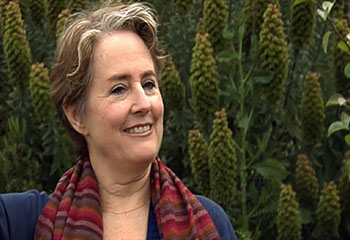
Alice Waters
Founder, The Edible Schoolyard
In 1971, after graduating from the University of California at Berkeley and training at the Montessori School in London, Waters opened Chez Panisse with a fixed-price menu that changed daily. The menu format is the heart of Waters’ philosophy of serving only the highest quality products, only when they are in season. Over its more than three decades of existence, Chez Panisse has developed a network of mostly local farmers and ranchers whose dedication to sustainable agriculture assures Chez Panisse a steady supply of pure and fresh ingredients. In 1997, Waters helped launch the Edible Schoolyard on the campus of the local Martin Lurther King Jr., Middle School. On the one-acre plot, students not only raise fruits and vegetables but also learn about food production and preparation in gardening and cooking classes. Waters has authored and co-authored eight food-related books. In 2001, Chez Panisse was named Best Restaurant in America by Gourmet magazine. Waters has received numerous awards, including the Bon Appetit magazine’s Lifetime Achievement Award in 2000 and the James Beard Humanitarian Award in 1997. She was named Best Chef in America by the James Beard Foundation in 1992 and Cuisine et Vins de France listed her as one of the world’s 10 best chefs in 1986. Alice Waters is a strong advocate for farmer’s markets and for sound and sustainable agriculture.
“The experience in nature is so comforting to these kids who have never had their hands in the ground before. They just need to be here. They want to be in the garden.” – Alice Waters, Dirt! The Movie
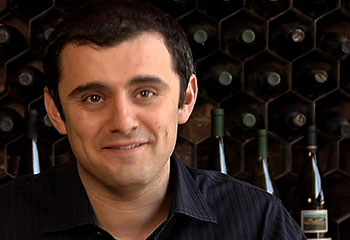
Gary Vaynerchuk
Host, WineLibrary.TV
Gary Vaynerchuk is a 32-year-old self-trained wine expert. His webcast, “The Thunder Show”, on www.winelibrarytv.com, attracts over 80,000 viewers each day. Gary’s cult-like following is the result of his unconventional, often irreverent commentary on wine. In the name of “expanding one’s palate”, Gary convinced Conan O’Brien to lick salted rocks and shared samples of dirt and grass with Ellen Degeneres. He routinely pans popular wines. At age 27, Vaynerchuk was the youngest winner of Marketwatch’s Business Award, Market Watch Leader, and has recently launched first book, “101 Wines Guaranteed to Inspire, Delight, and Bring Thunder to Your World.”
“With the amount of species that live in a teaspoon of dirt, I think it’s very obvious dirt might be more alive than we are.” – Gary Vaynerchuk, Dirt! The Movie
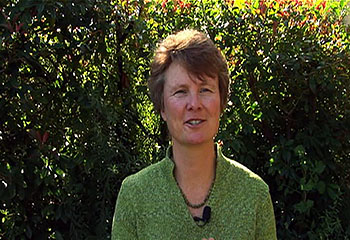
Janine Benyus
Founder, The Biomimicry Institute
Janine Benyus is a natural sciences writer, innovation consultant and author. In her latest book, “Biomimicry: Innovation Inspired By Nature,” Benyus coined the term biomimicry to identify an emerging discipline of bio-inspired innovation, for example, solar cells that mimic leaves. David Perlman of the San Francisco Chronicle called the book Biomimicry “one viable answer to the wake-up call that Rachel Carson sounded a generation ago in Silent Spring.” Since the book’s 1997 release, Benyus has evolved the practice of biomimicry by consulting with sustainable business, academic and government leaders, founding the nonprofit Biomimicry Institute and serving on the Eco-Dream Team at Interface, Inc. In addition to her biomimicry work, Benyus teaches interpretive writing, lectures at the University of Montana, and restores and protects wild lands. She serves on a number of Montana-based, land-use committees and is president of Living Education, a nonprofit organization dedicated to place-based living and learning. Benyus has received several awards including the Rachel Carson Environmental Ethics Award, the Lud Browman Award for Science Writing, the Science Writing in Society Journalism Award and the Barrows and Heinz Distinguished Lectureships.
“Our wealth is imagenary. It comes from soil.” – Janine Benyus, Dirt! The Movie
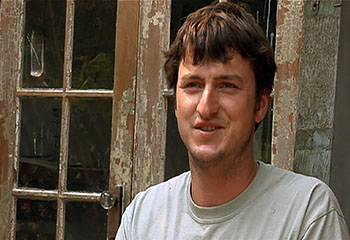
Kevin Rowell
the Natural Builders
Kevin Rowellhas devoted himself to the study of sustainability, working extensively on international development, particularly in Asia and Latin America. He is currently program director for Kleiwerks International a non profit that helps communities use what they have more efficiently(www.kleiwerks.org). In 2005 he cofounded the Natural Builders,(www.thenaturalbuilders.com) a contracting company that works around the world doing cutting-edge work in green building and development, as well as large scale art installations. His passion for natural materials and their use in construction has shown through his publications with groups such as the World Monuments Fund in preserving traditional architecture In Haiti, and with the United Nations where he has facilitated dialogues about the use of local materials in construction for development.
-Photo Neil Beckerman-2007

